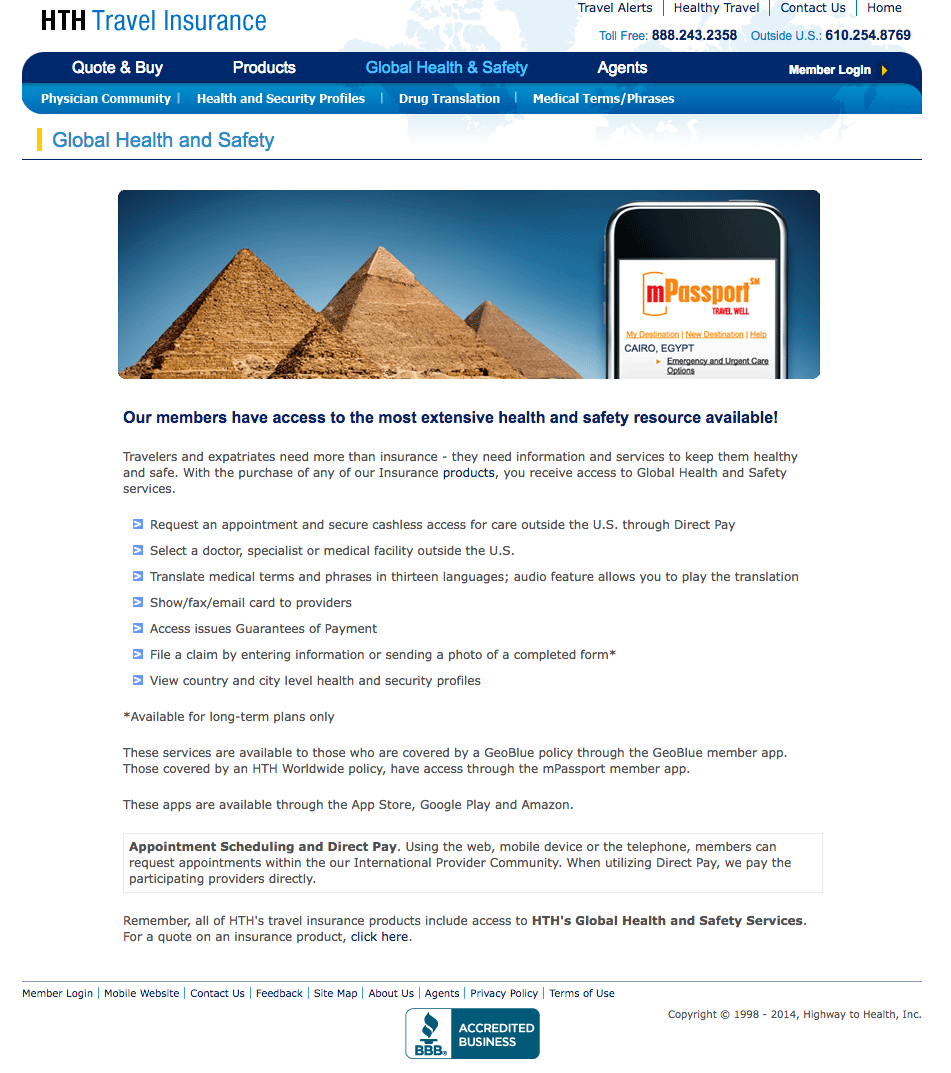Title : HTH Travel Insurance Review 2017 ConsumerAffairs
link : HTH Travel Insurance Review 2017 ConsumerAffairs
HTH Travel Insurance Review 2017 ConsumerAffairs

Four questions to ask before you buy travel guarantee
Aleksandar Nakic | Getty Images
Lost containers. Canceled flights. A tropical storm. There are a number of what-ifs that could derail your summer travel plans. But does it definitely follow that you need roam guarantee ?
Consumers are expected to shell out $98.02 billion on travel over the 3 month between Memorial Day and Labor Day, according to the ADI Travel Trends Report for 2017. That's one-third of the total proceed spend projected for 2017.
Deciding whether you'd benefit from hurtle coverage isn't a quick "yea" or' nay ." Experts say it depends on several factors, including the cost and components of your journey, where you live and where you're headed, and what possible difficulties you're worried about.( We are in for the purposes of an" above normal" hurricane season, after all .)
" There's no simple-minded rebut, because everyone's errand is slightly different ," responded Christopher Elliott, who advocates on behalf of travelers through his website, Elliott.org .
You might even be covered once. A brand-new analysis from WalletHub.com found that one-third of credit cards volunteer expedition cancellation policy, with an average $3,200 in coverage. Practically 40 percent give lost luggage policy, and a fourth offering retarded luggage coverage .
These four contentions can help you weigh your options :
70
SHARES
Kelli B. Grant | @kelligrant
Monday, 12 Jun 2017 | 8: 30 AM ET
1) How much coin is at bet ?
Check the change and cancellation plans for passage constituents including flights, inns, cruises and auto rentals, as well as any end acts once purchased, such as theme park tickets. That can help you assess how well much money might be lost if you need to cancel or adjourn your trip, or psyche dwelling early .
If that total is more than you're willing or able to lose, then travel insurance is worth a closer watch, did Loretta Worters, a vice president at the Insurance Information Institute .
71625007 David Sacks | Getty Images
2) What are your travel plans ?
Big-ticket outings with intricate itineraries are often better contenders for coverage, Elliott announced.( Think multicountry European trip or a bucket-list African safari, versus a domestic getaway to grandma's .) A program could help cover costs for situations such as the expedition company going out of business, or a delayed flight that means you miss your cruise deviation .
You might also want to consider travel insurance with medical coverage if you're headed abroad( where your health insurance may not be valid) or to a remote sphere or on a sail( where getting to a infirmary may require air expulsion ), Worters enunciated. Uncovered, those expenditures could add up to tens of thousands of dollars .
Michal Venera | Getty Images
3) What are you worried about ?
Dig into the details to make sure a program would give the coverage you want. Universally addressing, you have two options: worded exclusion( which incorporates a limited range of incidents and situations ), and cancel-for-any-reason coverage( which, true-blue to its appoint, offers broad coverage ). The onetime generally flows 5 to 7 percentage of the costs of your journey, and the latter, 8 to 10 percent, Elliott articulated .
" Named exclusion is a little more high-risk ," he announced, with big-hearted the differences in what's covered and when .
Say you're worried about hurricane season, which runs from June 1 through Nov. 30. One policy might allow you to cancel your journey as soon as there's an official storm warning in effect for your destination, while another may require a bigger impact like a delayed flight, supposed Steven Benna, a spokesman for comparison website Squaremouth. You won't be covered at all if the storm warning your expedition is named before you buy a policy .
Keep in sentiment that unless you get a cancel-for-any-reason policy, fear of pas -- tell, because you're worried about recent terrorist attacks or that you might contract a disease such as Zika at your end -- often isn't plowed .
Burton McNeely | Getty Images
4) Do you already have coverage ?
Before you buy a third-party pas insurance policy, check to see if you already have some safeties through other sources. For sample, a homeowners or renters insurance policy may cross your belongings away from residence, supposed Worters -- curing mitigate worries about crime or lost luggage .
Travel insurance is also a common benefit for credit cards, rendered you paid for those travel arrangements with the card.( Again, you'll want to scrutinize items carefully .) On the most generous posters, you might have coverage of up to $10,000 per tour, according to a recent Squaremouth analysis .
That might mean you don't need a policy at all, or only needed here that replenishes in chinks -- suppose, to add medical coverage and extend any tour payments that excess the ceiling, responded Benna. That stacking can assist you in create a more comprehensive policy at a lower costs, he read .
If you're a repeated traveler, insurance coverage is also able to be something you look for the next time you're hunting for a brand-new poster, added Jill Gonzalez, an reporter at WalletHub.com .
" These assistances are perhaps not top of attention ," she said -- but they could save you hundreds of dollars .